
Thanks to Adam Bradley.
Adam Bradley has kindly registered www.theeducatedimagination.com to our blog. Because of “domain forwarding” we can now be accessed by this very easy to remember address. Try it: www.theeducatedimagination.com

Thanks to Adam Bradley.
Adam Bradley has kindly registered www.theeducatedimagination.com to our blog. Because of “domain forwarding” we can now be accessed by this very easy to remember address. Try it: www.theeducatedimagination.com
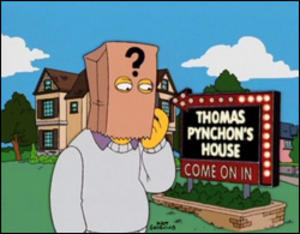
A note from Michael Sinding:
Regarding Pynchon and Menippean Satire:
Charles Hollander notes that at Cornell, Pynchon also took a course with M. H. Abrams. As Abrams reviewed Frye’s “Anatomy,” it is possible that Pynchon picked up the idea of the genre from that class. Hollander reported the course with Abrams in “Pynchon Notes,” and suggested the connection with Menippean Satire at a recent conference. He doesn’t give the year in which Pynchon took the course, but says Pynchon graduated from Cornell in 1959.
The term Menippean satire does not occur in Pynchon’s writings. But as Hollander’s note shows, Pynchon wrote a paper (which Abrams later quoted to students) comparing Voltaire’s “Candide” with Samuel Johnson’s “Rasselas.” Both of those books are (or can be seen as, if you’re fussy) Menippean satire, and that might have led Abrams to talk about the genre.
“Abrams Remembers Pynchon.” Pynchon Notes 36-39 (1995-1996): 179-80.
![]()
Thanks to the traffic at the blog over the past six days, Google at last has a good handle on us. Googling “educated imagination blog” is now sufficient to bring us up as the first hit.
You’ll notice that we’ve added a new “widget” in our menu column. There is now a drop-down “Category” menu. Every entry we post is assigned a category. For example, all of the “Today in the Frye Diaries” entries posted so far are categorized “Frye Diaries, August.” When you hit the “Frye Diaries, August” link wherever it occurs, you’ll be presented with all other entries in that category. Other categories at the moment include “Metaphor,” “News,” “Guest Bloggers,” and a few others. Needless to say, the number of categories will only continue to expand as our content increases.
We are also slowly but surely lining up commitments from prospective guest bloggers. Let’s be clear on what this means: it only requires that you send us text, in whatever form you care to send it, and we will post it. At no point will you be required to interact with the blog yourself. You are providing content to us via email, we are putting it up on the blog under your name. That’s it. We hope that encourages a lot of you to jot down some thoughts and send them to us so that we can post them for others to read.
Finally, you’ll see that we’re embedding links to other sites relating to people, places and book titles. When it comes to books, we try to link to sites where the chapter or section in question can be found online for quick confirmation. This includes works by Frye, whose Collected Works seem to be extensively excerpted in Google Books. If you have access to better links than we are posting, please forward them to us.
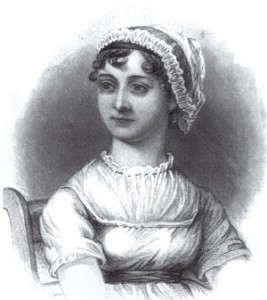
1942: In bed with hay fever and thinking about Jane Austen:
[75] Stayed in bed all day: even so not a good night. Read Jane Austen’s Love and Friendship, a skit which proves to me, as none of her novels prove, that she is an important & not merely an intelligent & amusing writer. Jane is a blind spot to me: I enjoy reading her for relaxation and I admire her skill and ingenuity, but I never feel much sense of cultural infusion, of the kind I require from a great writer. This boils down to the fact that I have nothing to say or discover about her, & and so take her merits on faith… I can’t forgive Jane for the vulgarity and Philistinism of Mansfield Park: if she hadn’t written that absurd book I could enjoy her without reservations. But her explicit preference for her dim-witted Fanny to her intelligent and sensible Mary Crawford means that in the long run she accepted her county families, and had no positive basis for her satire of Lady Catherine or Collins or Sir whatsisname [Walter Eliot] in Persuasion. In the long run she stands for the “dismal and illiberal,” for the exclusion of the free air of culture and intelligence. Mansfield Park gives her away–well, it gives the whole 19th c. away.
Note: Compare what he says here with his extended examination of Austen in The Secular Scripture more than thirty years later. (See Chapter 3, “Our Lady of Pain: The Heroes and Heroines of Romance,” which can be read in its entirety at the above link: pull down the “Contents” menu and hit the link for chapter 3.)
1950: Local gossip in Massachusetts with an old Oxford acquaintance, Rodney Montgomery Baine: the difficulties in landing a permanent academic post, the increasing necessity to complete a PhD to do so, the breakup of a friend’s marriage. Then, finally:
[568]… He said he liked my book [Fearful Symmetry], though, again very typically of Rodney, he prefaced this by saying he’d found some errors in it, & almost wrote me about them. That leaves me a bit up in the air, as he’s forgotten what they were: however, Rodney’s criticized my stuff before now, & what he calls error I don’t invariably recognize as such.
Tomorrow: the Fryes’ wedding anniversary
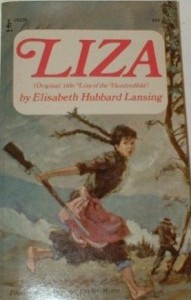
1942:
[74] Cool weather, thank God, but I made the fatal mistake of going to the Kings’ [Harold and Marjorie] at night. I paid for it with an asthmatic night. I wish I could develop the art of automatically avoiding the echoes which are the major source of revision in my writing: why couldn’t I have said “Kings in the evening”?
1950: Frye’s account of the day after the night before of drinking with the Thurbers (it involves still more drinking). He then describes a visit to a Catholic church a couple of days earlier, which in turn leads to some observations that anticipate the emerging Updikean vision of America in the 1950s.
[564] Sunday we nursed our hangovers and some people came in for yet another drink before lunch. Their neighbors the Lansings came: Mrs. [Elisabeth Hubbard] Lansing, who’s called City, is a writer of children’s books [pictured above], & breezed in surrounded with her own kids, like a Sistine Madonna. She was at the party last night, and I liked her.
[566] I forgot to say that on Friday Ken took us into one of the most beautiful modern churches I’ve ever seen. A little Catholic parish church dedicated to St. Thomas More, with clear glass windows and designs etched on them… [T]he whole effect was completely serene. I suppose the great appeal of Catholicism in the States today has a lot to do with the sense that the degenerate pseudo-Protestants who ought to be leading the country’s culture are shaking their nerves to pieces with indiscriminate drinking and fucking and chattering. Well, we got on the train & went home to Boston. We went into the buffet car for a snack. Mem: don’t ever go again into a buffet car for a snack. Swindling the public on food has really got to be a fine art: all eating places are getting assimilated to the supper-dance clip joints.
Tomorrow: in bed with Jane Austen
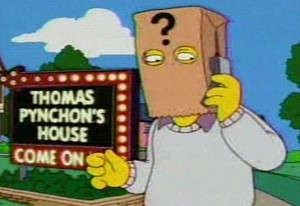
Thomas Pynchon in an episode of The Simpsons
A note from Bob Denham:
According to Robert Murray Davis, Thomas Pynchon took Vladimir Nabokov’s course in the novel at Cornell and somehow discovered what Northrop Frye called “Menippean Satire,” a work based on the root meaning of satire, “satura,” medley, mixture. [“When Was Post-Modernism?” World Literature Today 75, no. 2 (Spring 2001): 295-8.]
Frye also cites Pynchon in a discussion about paranoia in Creation and Recreation.
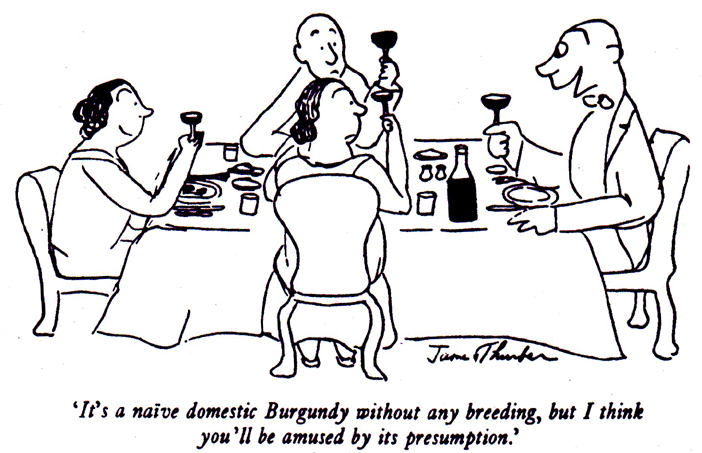 1942:
1942:
[73] [Peter] Fisher claims the reason Westerners can’t get any charge out of Buddhist monks is that the average scholar to them is not a seeker of wisdom but a scribe: it’s a question of class.
1950:
Still in Massachusetts, Frye attends a cocktail party where he relays a greeting from Ned Pratt to Mark van Doren. He then gets into an unpleasant conversation with a “mural painter named Bradford” who claims Blake “was a fourth-rate painter” with appeal only to “li’erary people.” Although he eventually manages to slip away, Frye’s evening, while interesting, seems to go from bad to worse with drink:
[562]…Well, I drank several Manhattans & we moved on to the Thurbers. There I had a lot more drinks & dinner — well, supper — wasn’t served until very late, so I got horribly sick and had two long agonizing sessions in the can puking my guts up… Apart from that I enjoyed talking to James Thurber [pictured above], who told me all about Harold Ross, who seems to be a strange and attractive mixture of toughness and innocence — possibly a much stronger character than Thurber himself, who seems to me to have the insecurity of someone from central Ohio, who’s still trying to adjust himself to the big, bad city. Now how in God’s name — I’m not drunk now — did I manage to compose a sentence like that, plopping one clause after another like horse turds and who-whoing like an owl?
The party goes on till five and “the conversation turns bawdy and often abusive.” Even so, Frye finds Thurber “completely charming and appealing.”
Tomorrow: dealing with a hangover
![]() After three full days online, it looks as though our minor technical difficulties have been resolved — all our links now reliably function as they should. Click them with confidence.
After three full days online, it looks as though our minor technical difficulties have been resolved — all our links now reliably function as they should. Click them with confidence.
We are getting a steady stream of emails from people with proposals for papers for the upcoming journal, Myth and Metaphor. Keep them coming. Please also remember that we are looking for guest bloggers to post here at The Educated Imagination. We encourage anyone who feels they might have something to contribute — a nagging idea that won’t go away, an outstanding issue that hasn’t been resolved, a crazy insight that haunts your sleep — to drop us a line as soon as you can. We want to post your work-in-progress here.
In other news, we are pleased to announce that Bob Denham has kindly agreed to allow us to provide his Northrop Frye Newsletter a permanent digital home at Myth and Metaphor. We will, of course, link it here too once it is online.
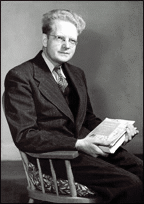
Frye occasionally quipped that some undertakings are as short-lived as a new year’s resolution. He may have had his own diaries in mind. Frye started seven separate diaries between 1942 and 1955. Five of them dutifully commence in January and, of those, only one makes it to September; one lasts till March, one till April, and one till May. Another doesn’t make it past January 13th. His diary for the entire year of 1953 consists of four entries in March. His first diary, begun in the summer of 1942, he manages to maintain till mid-November, making it the latest month of any year that Frye records to any significant extent. Which is to say that drawing on anniversary occasions from the diaries is a haphazard endeavor at best. Still, while we find our footing here and build our readership and contributor base, this kind of exercise promises nutritious tidbits. What Frye says in a throwaway observation often reveals more than many people manage with their best shot. We’ll make this first entry a two-fer, covering both the 19th and the 20th of August.
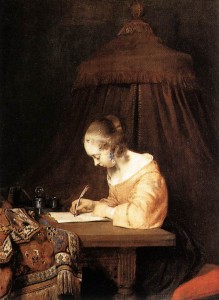
Thanks first of all to those who submitted comments and sent emails in response to our first post. It looks like most people are eager to see the new journal, Myth and Metaphor, come online. That should happen very soon, so please remember that we are looking for contributions to our inaugural issue. We are accepting both peer reviewed academic papers and articles of general interest. Your paper need not be about Frye, but should address some aspect of literature, the imagination and culture that is more or less relevant to Frye readers. Truth is, we look forward to all submissions from any quarter.
The first response from our readers has been enthusiastic enough that we have arranged with our endlessly patient tech support adviser to open up a Guest Blogger option at the site. We hope to have many of you posting here as regularly as possible. Send us a draft post or an outline of one via email. We’ll take care of the rest.
Meanwhile, be sure to check in regularly. We have a number things in the works. And always feel free to contact us. We are always glad to hear from you.